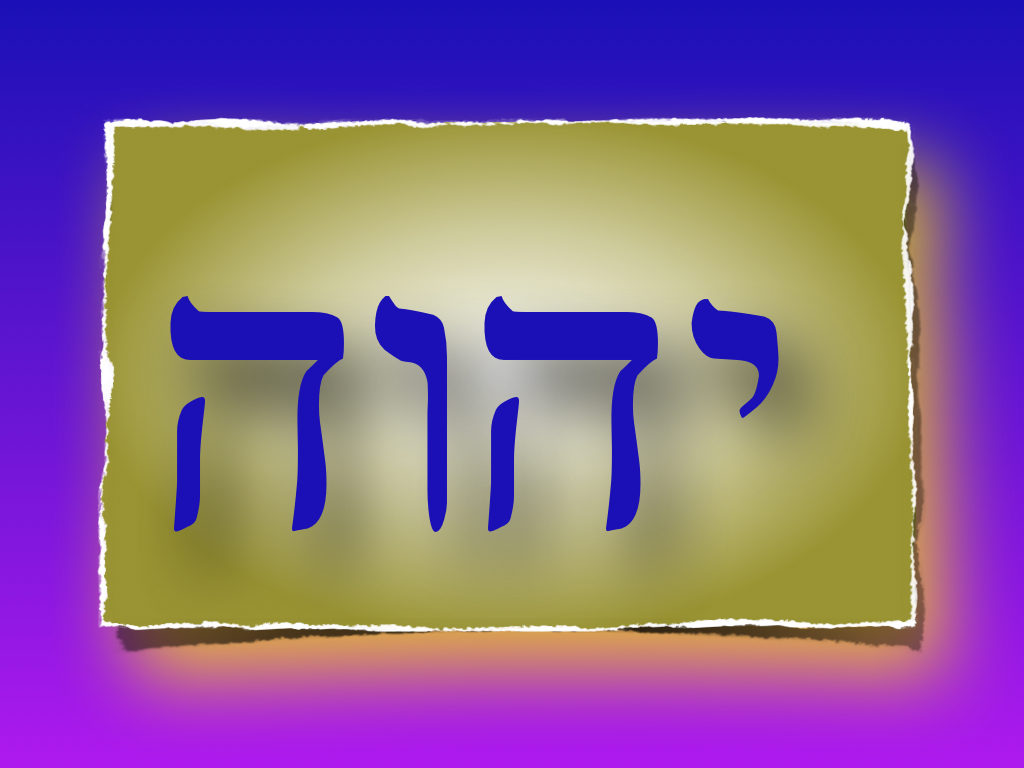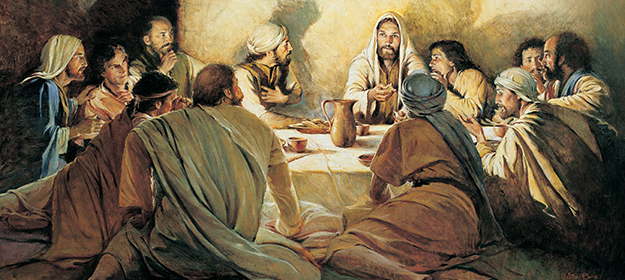This is a question that many Christians have. They have largely been taught that it was the Father who spoke to and led the Israelites in the wilderness, not the pre-incarnate Word of Elohim who became Yeshua.
It is convenient for those who take a dim view of Torah to believe this, since it’s an inconvenient truth in light of traditional anti-Torah Christian theology to think that Yeshua was actually the one who gave the Torah and commanded the Israelites to obey it. After all, hasn’t the church taught us that he’s the one who came to fulfill it so that we no longer have to do it?
I address this issue in the following dialog with a reader.
Erica emailed me with the following questions:
I am a fellow (fairly new) Torah observant believer in Yeshua. I was listening to a video by Natan Lawrence on “Yeshua gave the Torah-Law to the Children of Israel.” I am confused about a particular thing he said and was hoping your could clarify it for me.
Around midway through this video Natan stated that John 5:37 shows that it couldn’t have been our Father who gave the commandments at Mt Sinai. This verse, which states: “…You have neither heard His voice at any time, nor seen His form”
Now what I don’t understand, is that I thought Yeshua was addressing the Jews (v.18 who were trying to kill him) and their grossly misguided hearts – as He states in the next verse that “you don’t have His Word staying in you, because you do not believe Him who He sent.” I understand that no one has seen the Father (Jn 1:18) I didn’t think this verse applied to everyone – insinuating that no one can hear from the Father. Or am I misunderstanding Natan’s point?
In ch 6 v 45 Yeshua states “Everyone then who has heard from the Father, and learned, comes to Me”
Now I agree that Yeshua could have clearly been present at Mt Sinai as He and the Father are one – but looking at John 1:17 which states “for the Torah was given through Mosheh – the favour and the truth came through Yeshua Messiah.” Wouldn’t it read differently if Yeshua gave the commandments? Just wondering
Again, I might be misunderstanding the point of what Natan was saying – so I appreciate your assistance with this confusion!
Here is my response:
Hello Erica,
No, you didn’t misunderstand me. I teach that Yeshua (before he was Yeshua) in his pre-incarnate state, was the Word of Elohim who the Father not only used to create the world and humans (John 1:3; Col 1:15; Heb 11:3), but to communicate with the children of Israel including the Jews (of which the Jews largely from the tribe of Judah were a part). Stephen affirms this in Acts 7:38 where the word “Angel” should, in this case, be “Divine Messenger” referring to the pre-incarnate Yeshua who was the Divine Messenger of his Father YHVH. He was the same Messenger (incorrectly translated “Angel”) that spoke to Moses at the burning bush (Exod 3:2), as well as the Man (a prophetic allusion or shadow to the incarnation of Yeshua the Messiah as the God-Man) with whom Jacob wrestled (Gen 32:24), but who was actually Elohim (vv. 28, 30 and Hos 12:3–4), was in the pillar of fire and led the Israelites in the wilderness. Paul also refers to Yeshua as “the Rock” from which the Israelites drank (1 Cor 10:4), and says that the Israelites tempted Messiah (1Cor 10:9). Paul doesn’t say “Father” here, nor does Stephen refer to the Father as having directly interacted with the Israelites either. Moreover, Yeshua confirms that he was the I AM at the burning bush in John 8:58, which is why the Jews wanted to stone him. They thought he was committing blasphemy by calling himself Elohim. Note what he didn’t say: My Father was the I AM! He said that he was.
Furthermore, if we understand that Yeshua in his preincarnate state married Israel at the foot of Sinai (Ezek 16), then divorced her because of her adulteries, then died for her sin at the cross to pay the death penalty for the adulterous woman, then will remarry the rebirthed or born again redeemed Israel, the one new person (Eph 2:11–19) or church (Rev 19:7–9) comprised of redeemed believers who are the Israel of Elohim (Gal 6:16), then everything falls neatly into place that Yeshua was the one who directly interacted with the ancient Israelites. If you want to go deeper on these subjects, I have published many written articles and made numerous videos as well about these truths that the mainstream church has missed. What I have given here is the briefest overview.
I know this goes against what the mainstream church teaches, and thus such truths may jar a person’s comfortable understandings a bit, but as you’re finding out in coming to Torah, there are many things that the mainstream church as either missed or gotten wrong either because their apathy or outright antipathy for the Torah has blinded them from the full light of the truth of Scripture, and caused them to misunderstand the Bible because of their wearing tinted and even shaded glasses thus hindering them from seeing the full light of truth.
You can disagree with me, and that’s fine. It won’t affect one’s salvation, but understanding who Yeshua really is and was helps one to a) have a higher view of Yeshua, b) have a higher view of the Torah, c) have a better understanding the truths of the Bible which, like a beam of light, are a perfectly straight line with everything adding up, which brings us back to John 5:37 and 1:18. Instead of cramming these verses into our handed down theologies according to the traditions of men and then painting them to match, which is what the church has made an art and science of and taught us do do, as well, let’s just read and believe the Bible for what it actually say.
One more thing. In John 14:15, Yeshua says that if you love me, keep my commandments. This is nearly an exact quote of someone else telling the Israelites the same thing in Exod 20:16. It seems clear to me that Yeshua is connecting himself to that Person who previously spoke to the Israelites.
All of this goes to the point that when we start connecting the dots and letting the Scriptures speak for themselves instead of imposing on them our suppositions based on the traditions of men who are looking at the Scriptures often through lenses of men’s thinking and philosophies, suddenly things begin to come alive more, line up more, make more sense and the Bible becomes a much more amazing and unified, unearthly, supernaturally inspired book.






